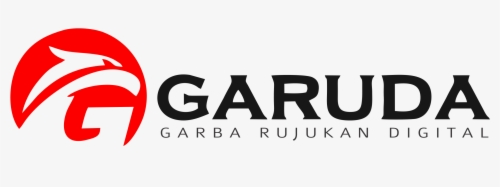Challenges and strategies in developing human resources for the halal industry: Evidence from Indonesia
DOI:
https://doi.org/10.22219/jibe.v4i02.8270Keywords:
Challenges, halal industry, regulation, human resources, governmentAbstract
The government has prioritized the development of the halal industry sector in Indonesia through the launch of the Indonesian Sharia Economics Master Plan (MEKSI) in 2019. Currently, Indonesia is in the 5th position in the world halal industry ecosystem. This is the main focus to strengthen Indonesia as a world halal producer in 2024. This study aims to examine the challenges of developing halal industry in Indonesia and try to provide a strategy for developing human resources (HR). This study applies a qualitative research approach using three stages of data analysis, namely data reduction, data presentation, and data verification. Data analysis techniques are supported by the NVivo 12 plus program. Based on the results of the literature study, several challenges were found related to the halal industry in Indonesia, i.e. Regulation, Human Resources (HR), Government, Infrastructure and Organization. This study compiles a human resource development strategy to face HR challenges, as follows 1) Human Resource Transformation through people transformation, cultural transformation, organizational transformation and 2) Human Resource Digitalization.
Downloads
References
A.J., W. J., & Jonathan, L. (2011). The challenges of Islamic branding: navigating emotions and halal. Journal of Islamic Marketing, 2(1), 28–42. https://doi.org/10.1108/17590831111115222
Abduttawwab, M. (2019). Halal recreation potential in Indonesia in improving tourists and the global economy. 94902.
Aisyah, M. (2016). Consumer Demand on Halal Cosmetics and Personal Care Products in Indonesia. Al-Iqtishad: Jurnal Ilmu Ekonomi Syariah, 9(1), 125–142.
Ali Hasan, H., & Azis Muslimin, A. (2019). Ambiguity on Syariah Tourism In Indonesia. Humanities & Social Sciences Reviews, 7(5 SE-Economics & Commerce), 609–617. https://doi.org/10.18510/hssr.2019.7570
Anwar Fathoni, M., & Hadi Syahputri, T. (2020). Potret Industri Halal Indonesia: Peluang dan Tantangan. Jurnal Ilmiah Ekonomi Islam, 6(03), 428–435. http://jurnal.stie-aas.ac.id/index.php/jiedoi:http://dx.doi.org/10.29040/jiei.v6i3.1146
Arbak, S., Islam, R., & Al Rasyid, H. (2019). Relationship Between Advertisement and Purchase Intention on Halal Cosmetic Products In Malaysia. Humanities & Social Sciences Reviews, 7(3 SE-Economics & Commerce), 683–694. https://doi.org/10.18510/hssr.2019.7399
Baidhowi, B. (2018). Sharia Banking Opportunities and Challenges in the Digital Era. 1st International Conference on Indonesian Legal Studies (ICILS 2018).
Barizah, M. R. N. (2020). Halal Certification of Patented Medicines In Indonesia In Digital Age: A Panacea for The Pain? Systematic Reviews in Pharmacy, 11(12), 210–217.
Battour, M., & Ismail, M. N. (2016). Halal tourism: Concepts, practises, challenges and future. Tourism Management Perspectives, 19, 150–154. https://doi.org/https://doi.org/10.1016/j.tmp.2015.12.008
Bissola, R., & Imperatori, B. (2018). HRM 4.0: The digital transformation of the HR Department.
Bondarouk, T., & Ruël, H. J. M. (2009). Structuring the IT-enabled transformation of HR: An HRM frames analysis in an international company. Handbook of International Human Resource Management: Integrating People, Process, and Context, 271–292.
Briliana, V., & Mursito, N. (2017). Exploring antecedents and consequences of Indonesian Muslim youths’ attitude towards halal cosmetic products: A case study in Jakarta. Asia Pacific Management Review, 22(4), 176–184.
Choi, J. (2004). Transformation of Korean HRM based on Confucian values. 10(1), 1–26.
Delma, P., Sharon, P., & Joanne, S. (2015). Traceability systems in the Western Australia halal food supply chain. Asia Pacific Journal of Marketing and Logistics, 27(2), 324–348. https://doi.org/10.1108/APJML-05-2014-0082
Destiana, R., & Astuti, R. S. (2019). Pengembangan Pariwisata Halal di Indonesia. Conference on Public Administration and Society, 1(01).
Eckhardt, A., Laumer, S., Maier, C., & Weitzel, T. (2014). The transformation of people, processes, and IT in e-recruiting: Insights from an eight-year case study of a German media corporation. Employee Relations, 36(4), 415–431.
Erhan, B., & Mehmet, S. (2019). Halal tourism: conceptual and practical challenges. Journal of Islamic Marketing, 10(1), 87–96. https://doi.org/10.1108/JIMA-06-2017-0066
Fahham, A. M. (2017). Tantangan Pengembangan Wisata Halal Di Nusa Tenggara Barat. Jurnal Aspirasi, 8(1), 65–79.
Faried, A. I., & Sembiring, R. (2019). Enhance Of Halal Rule Development Model On Fashion Industry Indonesia. 24(9), 26–32.
Firmansyah, E. A., & Anwar, M. (2019). Islamic financial technology (FINTECH): its challenges and prospect. Achieving and Sustaining SDGs 2018 Conference: Harnessing the Power of Frontier Technology to Achieve the Sustainable Development Goals (ASSDG 2018).
Hanzaee, K. H., & Chitsaz, S. (2011). A review of influencing factors and constructs on the Iranian women ’ s Islamic fashion market. Interdisciplinary Journal of Research in Business, 1(April), 94–100.
Harrieti, N., Abubakar, L., Djukardi, E., & Nurhasanah, N. (2020). Integration of Commercial Finance and Social Finance: Challenges of Sharia Banking in Indonesia. Journal of Legal, Ethical and Regulatory Issues, 23(2), 1–13.
Hartati, I. (2020). Strategi Pembangunan SDM Kementerian Keuangan Republik Indonesia dalam Menghadapi Tantangan Era Disrupsi 4.0. Jurnal BPPK: Badan Pendidikan Dan Pelatihan Keuangan, 13(1), 109–129.
Haseeb, M. (2018). Emerging issues in Islamic banking & finance: Challenges and solutions. Academy of Accounting and Financial Studies Journal, 22(Specialissue), 3685.
Izzuddin, Z. M., Faridah, H. H., & Kadir, O. A. (2019). Halal brand personality and brand loyalty among millennial modest fashion consumers in Malaysia. Journal of Islamic Marketing, 11(6), 1277–1293. https://doi.org/10.1108/JIMA-10-2018-0187
Jaelani, A. (2017). Halal Tourism Industry in Indonesia: Potential and Prospects. SSRN Electronic Journal. https://doi.org/10.2139/ssrn.2899864
Lamsihar, A. T., & Huseini, M. (2019). Transformasi Budaya dan Inovasi Perusahaan BUMN. Inovbiz: Jurnal Inovasi Bisnis, 7(1), 64–70.
Leda, P., Maria, V., & Eleanna, G. (2007). E‐HR adoption and the role of HRM: evidence from Greece. Personnel Review, 36(2), 277–294. https://doi.org/10.1108/00483480710726145
Limsuwan, P. (2019). The Analysis Of Perceived Value Factors Affecting Parents’ To Purchase Packaged Baby Food Products In Thailand. Humanities & Social Sciences Reviews, 7(5 SE-Economics & Commerce), 318–326. https://doi.org/10.18510/hssr.2019.7537
Maharani, S. (2020). The Beyond Challenges Of Indonesia Sharia Banking In The Digitalization Era.
Majid, M. A. A., Abidin, I. H. Z., Majid, H. A. M. A., & Chik, C. T. (2015). Issues of Halal Food Implementation in Malaysia Chemah TAMBY CHIK. Journal of Applied Envirenmental and Biologcal Sciences, 5(6S), 50–56. www.textroad.com
Majid, M. B., Sabir, I., & Ashraf, T. (2015). Consumer Purchase Intention towards Halal Cosmetics & Personal Care Products in Pakistan. Global of Research in Business & Management, 1(1), 45–53.
Martiana, A., Maesyaroh, & Sobar. (2018). Motivation and obstacles faced by women halal fashion entrepreneurs and role of the business on women’s economic empowermentin Yogyakarta Indonesia. Humanities and Social Sciences Reviews, 6(2), 106–110. https://doi.org/10.18510/hssr.2018.6213
Masrom, Daut, Rasi R.Z., R. M., & Niraula. (2019). Evaluation Of The Business Excellent Implementation Among Halal Certified Food Manufacturers In Malaysia. Humanities & Social Sciences Reviews, 7(2 SE-Economics & Commerce), 220–225. https://doi.org/10.18510/hssr.2019.7224
McGuire, J. B., Palus, C. J., Pasmore, W., & Rhodes, G. B. (2009). Transforming your organization. Greensboro: Center for Creative Leadership.
Mubarok, F. K., & Imam, M. K. (2020). Halal Industry in Indonesia; Challenges and Opportunities. Journal of Digital Marketing and Halal Industry, 2(1), 55. https://doi.org/10.21580/jdmhi.2020.2.1.5856
Muhamad, M. (2020). Tantangan Dan Peluang Penerapan Kebijakan Mandatory Sertifikasi Halal (Studi Implementasi Uu No. 33 Th. 2014 dan Pp No. 31 Th. 2019). Jurnal Ilmu Ekonomi Dan Bisnis Islam, 2(2), 1–26.
Mujahidin, M. (2019). Opportunities and Challenges of Sharia Technology Financials in Indonesia. 94844.
Nadira, R. roro azka. (2020). Potensi Industri Halal di Indonesia. https://www.ibec-febui.com/potensi-industri-halal-di-indonesia/
Nisha, N., & Iqbal, M. (2017). Halal ecosystem: Prospect for growth in Bangladesh. International Journal of Business and Society, 18(S1), 205–222.
Norazmi, M. N., & Lim, L. S. (2015). Halal pharmaceutical industry: opportunities and challenges. Trends in Pharmacological Sciences, 36(8), 496–497.
Perbawasari, S., & Setianti, Y. (2013). Komunikasi Dalam Transformasi Budaya Perusahaan. Dalam Jurnal Penelitian Komunikasi, 16, 1–12.
Rasit, R. M., Hamjah, S. H., Misrom, A., & Yahya, N. H. (2019). Socio-Cultural Discourse Of Muslim Society In Social Semiotics Aspect Of Advertising Text In Malaysia. Humanities & Social Sciences Reviews, 7(5 SE-Sociology), 256–263. https://doi.org/10.18510/hssr.2019.7531
Rasul, T. (2019). The trends, opportunities and challenges of halal tourism: a systematic literature review. Tourism Recreation Research, 44(4), 434–450. https://doi.org/10.1080/02508281.2019.1599532
Robertson, K. (2000). Work transformation: integrating people, space and technology. Facilities.
Rochaeni, A. (2008). Strategi Pengembangan Sumber Daya Manusia dalam Era Kompetisi. Manajerial, 410.
Sackmann, S. (1989). The role of metaphors in organization transformation. Human Relations, 42(6), 463–485.
Satriana, E. D., & Faridah, H. D. (2018). Halal Tourism: Development, Chance and Challenge. Journal of Halal Product and Research, 1(2), 32. https://doi.org/10.20473/jhpr.vol.1-issue.2.32-43
Sayogo, D. S. (2018). Online traceability for halal product information: perceptions of Muslim consumers in Indonesia. JOURNAL OF ISLAMIC MARKETING, 9(1), 99–116. https://doi.org/https://doi.org/10.1108/JIMA-07-2016-0057
Sayogo, D., Yuli, S., Munarko, Y., & Zuhroh, I. (2017). Taxonomy to Support Traceability System for Smart Disclosure of Halal Product Information. JNIT (Journal of Next Generation Information Technology), 8(4), 29–38.
Schalock, R. L., Verdugo, M. A., & van Loon, J. (2018). Understanding organization transformation in evaluation and program planning. Evaluation and Program Planning, 67, 53–60.
Shields, J. L. (1999). Transforming organizations. Information Knowledge Systems Management, 1(2), 105–115.
Sugibayashi, K., Yusuf, E., Todo, H., Dahlizar, S., Sakdiset, P., Arce Jr, F., & See, G. L. (2019). Halal cosmetics: A review on ingredients, production, and testing methods. Cosmetics, 6(3), 37.
Suhaiza, Z., Mohammad, I., Azliza, A. A., & Kanagi, K. (2017). Halal logistics opportunities and challenges. Journal of Islamic Marketing, 8(1), 127–139. https://doi.org/10.1108/JIMA-04-2015-0028
Suyudi, M., Muhlis, M., & Mansur, M. (2019). Pesantren Sebagai Pusat Sertifikasi Dan Edukasi Sumber Daya Insani Pariwisata Syariah Dalam Penguatan Industri Halal Di Indonesia. Dinar: Jurnal Ekonomi Dan Keuangan Islam, 6(2), 135–145.
Tjahjaningsih, E. (2012). Upaya Peningkatan Kinerja Organisasi Melalui Inovasi Transformasi Budaya Prososial. Seminar Nasional Dan Call for Paper.
Triyono. (2013). Budaya Organisasi (Studi Eksplorasi pada Universitas Muhammadiyah Semarang). Value Added, 9(1), 1–20.
Vardarlier, P. (2020). Digital transformation of human resource management: digital applications and strategic tools in HRM. In Digital Business Strategies in Blockchain Ecosystems (pp. 239–264). Springer.
Waharini, F. M., & Purwantini, A. H. (2018). Model Pengembangan Industri Halal Food di Indonesia.
Warsito, C., Sholikhah, A., Rabiatul Adawiyah, W., & Pradipta Setyanto, R. (2020). Antecedents Of Consumers’ Decision For Halalmart Shopping: The Moderating Role Of Family Religious Commitment. Humanities & Social Sciences Reviews, 8(1 SE-Economics & Commerce), 152–164. https://doi.org/10.18510/hssr.2020.8122
Warto, & Arif, Z. (2020). Bisnis Produk Halal antara Peluang dan Tantangan , Problematika dan Halal Product Business Between Opportunities and Challenges , Problematics and Their Solutions Bisnis Produk Halal antara Peluang dan Tantangan , Problematika dan Solusinya Author corresp. Al-Ulum, 20(1), 274–294.
Widiastuti, T., Rusydiana, A. S., Robani, A., Insani, T. D., & Muryani. (2020). Obstacles and Strategies in Developing Halal Industry: Evidence From Indonesia. Humanities & Social Sciences Reviews, 8(4), 398–406. https://doi.org/10.18510/hssr.2020.8439
Downloads
Published
Issue
Section
License
Copyright (c) 2020 Journal of Innovation in Business and Economics

This work is licensed under a Creative Commons Attribution-ShareAlike 4.0 International License.
















